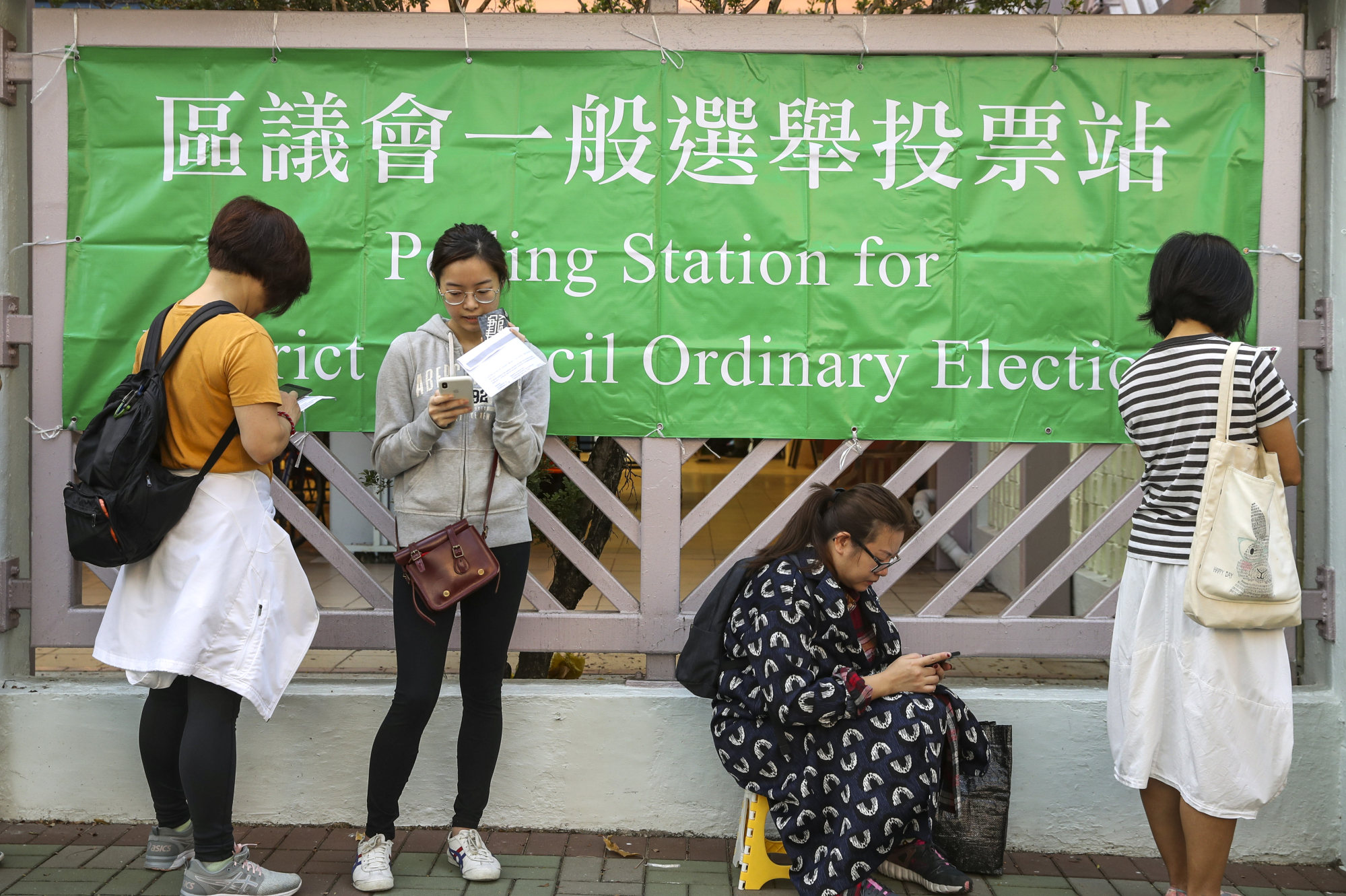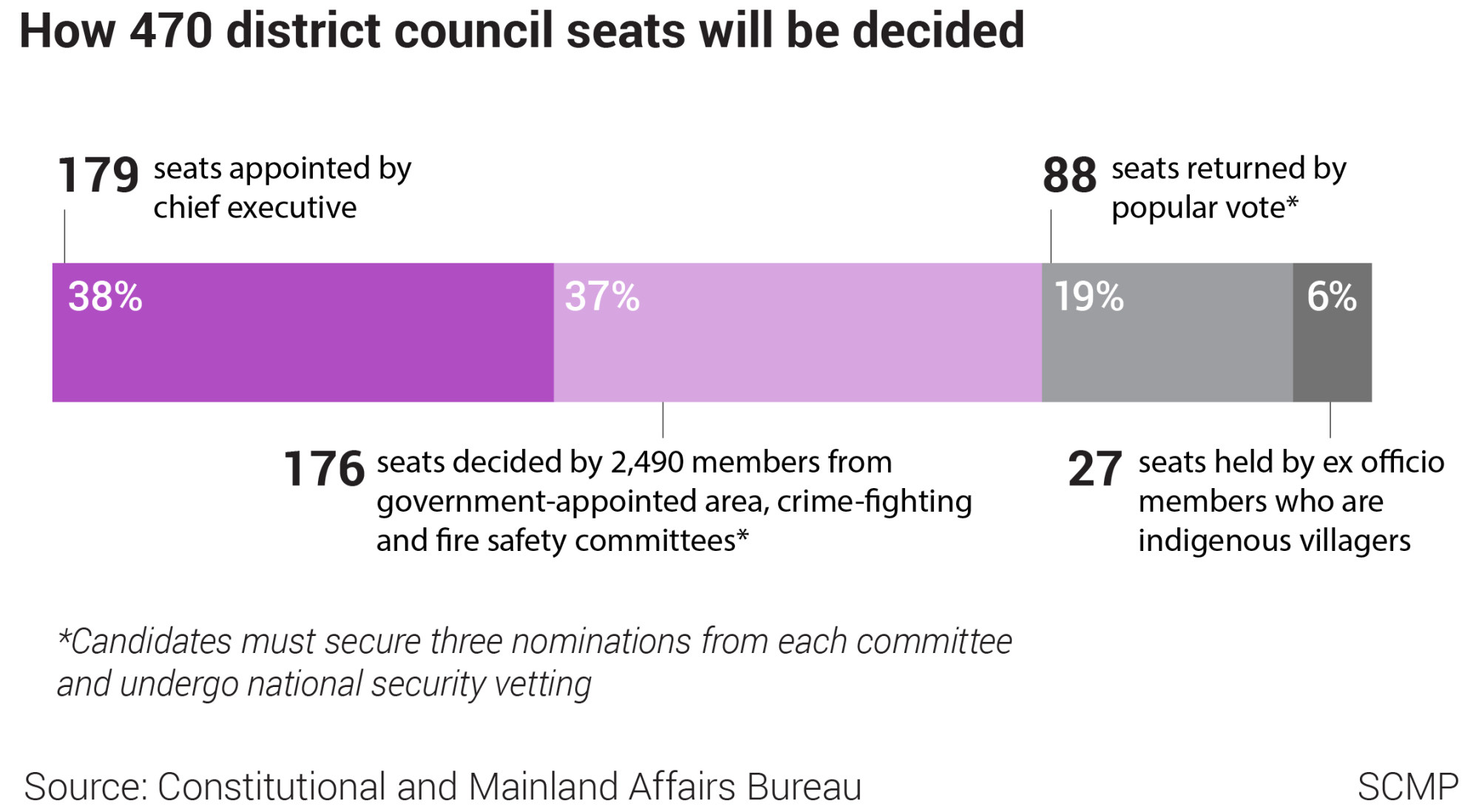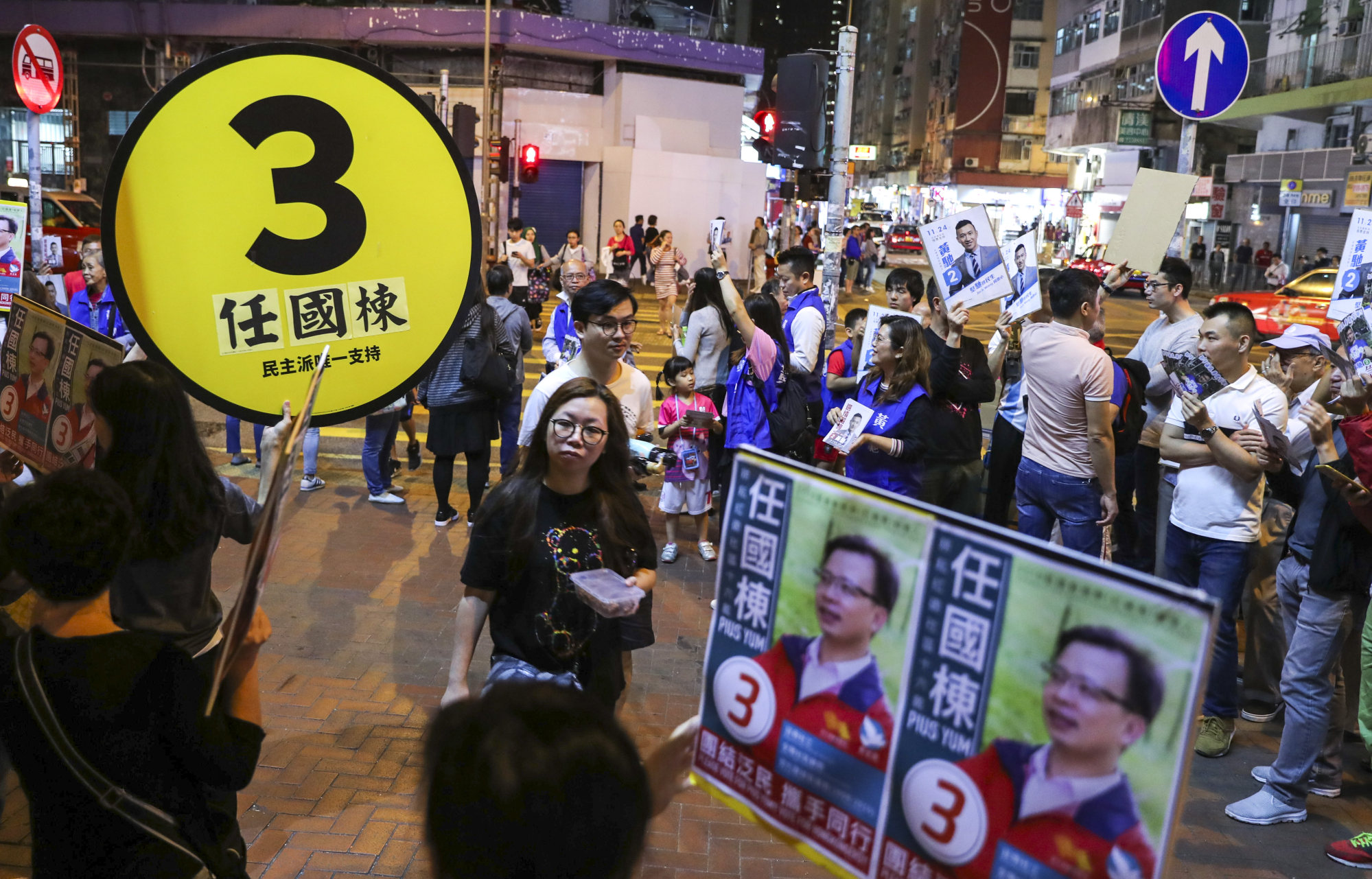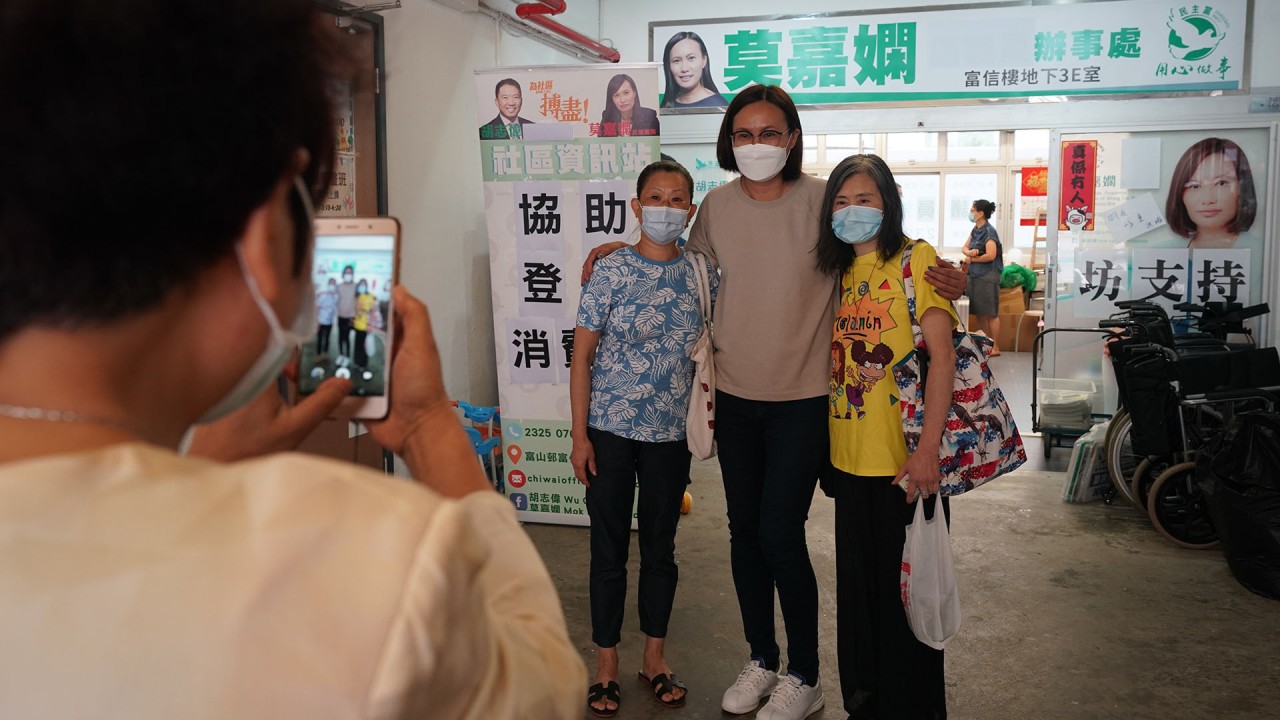
Hong Kong’s revamped district councils: on the ‘right track’ to prevent chaos, or just ‘echo chambers’?
- Authorities say move to ensure bodies are administrative-led needed to get councils back on ‘right track’
- But analysts call revamp major step backwards, noting number of directly elected representatives will be cut from nearly 95 per cent to 19 per cent
They called the revamp, which will see the number of directly elected representatives cut from nearly 95 per cent to 19 per cent, a big step backwards and a shift to an even more conservative model than when the councils were introduced four decades ago by the British.

In a move that Lee said would ensure the councils would be “administrative-led”, the chairmen of the 18 district councils would be taken up by the government’s district officers, a rank equivalent to a deputy director of departments, and a practice scrapped in 1985.
Candidates are also required to go through a tough national security vetting system and secure nominations from pro-Beijing district-level committees – posing hurdles for hopefuls from the opposition bloc to enter the race.

Political scientist Dr Ma Ngok, of Chinese University, said the new composition of the district councils was even more conservative than in 1982, when they were introduced. At the time, about 27 per cent of the seats were returned directly by the public.
He warned that by slashing 452 constituencies to 44, with each returning two representatives, residents would inevitably find it more challenging to get issues concerning local neighbourhoods fixed.
Under the government’s plan, there would be only one directly elected constituency each in Wan Chai and the outlying islands and two each in districts such as Sham Shui Po, Tsuen Wan and Wong Tai Sin.
“Over the past decades the constituencies of district councils have been drawn into small areas so that each representative can attend to very localised issues,” he said. “But in the future it might be difficult for the grass roots to reflect local matters concerning transport or hygiene to their representatives in district councils.”
John Burns, honorary professor at the department of politics and public administration at the University of Hong Kong, said it was “clearly a regression” to have district officers chairing the committees, overcautious vetting of candidates and reduced public participation in district councils. Such moves demonstrated a lack of trust in the people, he argued.
“These arrangements can easily produce echo chambers, choruses of ‘yes’ men and women,” he told the Post. “If so, authorities would not achieve one of the goals of the makeover, namely using the councils to discover ‘real’ public opinion. Yet paying close attention to authentic public opinion is a key to maintaining stability in Hong Kong.”
On Tuesday, Lee repeatedly dismissed suggestions that his proposal was retrogressive, arguing that it was “unscientific” to suggest that returning more seats through election was better.
“We have to consider carefully to ensure the ‘black violence’ in 2019 will not be repeated,” he said. “Have we seen this chaos before? No, and so the previous administrations might not have had such thorough consideration in the past. Now that these [incidents] have happened, we must adopt suitable measures to handle it.”
“What is best for Hong Kong, I think, has to be determined by the result any system will give,” he said. “If these councils [were] born through whatever method, [and] the result was disaster and bad administration for the people in that district, it cannot be a good system.”
Tensions between district councils and officials intensified after the new representatives took office in 2020, with many from the opposition camp pledging to look beyond the bread-and-butter issues and champion causes dear to anti-government demonstrators.
In January that year, for instance, a district officer for Tai Po and a group of her colleagues walked out of a council meeting as members decided to form a new committee to focus on security and constitutional affairs. The government, which backed the walkout, argued the establishment of the committee had deviated from the District Councils Ordinance, which states the bodies are there to advise on local community matters and focus on livelihood issues.

A district council of Central and Western on the next day also walked out of the council alongside then police commissioner Chris Tang Ping-keung, who was grilled by the predominantly pan-democratic members on the force’s conduct during the protests.
Such clashes prompted authorities to issue an internal circular requiring officials to walk out of meetings if district councillors used offensive or insulting language or displayed slogans that violated the Beijing-imposed national security law.
Analyst Lau Siu-kai, a consultant at the semi-official Chinese Association of Hong Kong and Macau Studies think tank, said the central government’s willingness to retain a portion of directly elected seats in the councils reflected its hope to win residents’ support for the overhaul and also reserve room for the opposition’s participation.
But political scientist Ma was pessimistic over the pan-democrats’ interest or chances in filling seats, pointing to the vetting mechanism and the dwarfed influence of elected members.
The revamp would mark the end of district councils being an elected institution, he said.
“It will become the extension of the executive arm or an advisory committee without much bottom-up advocacy,” he said.



